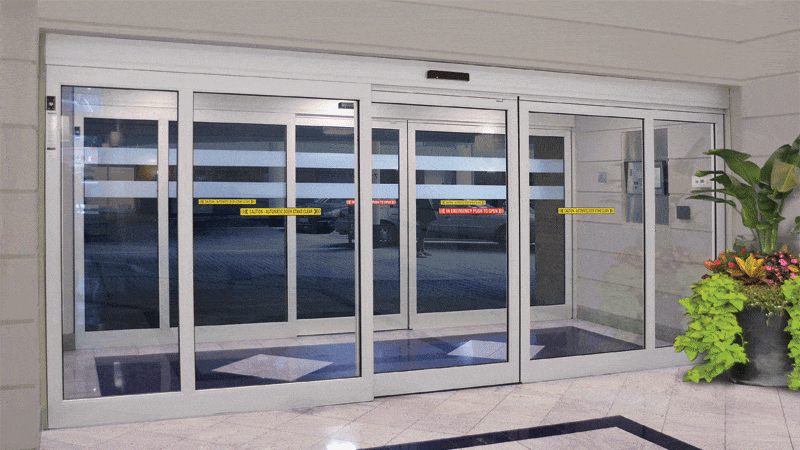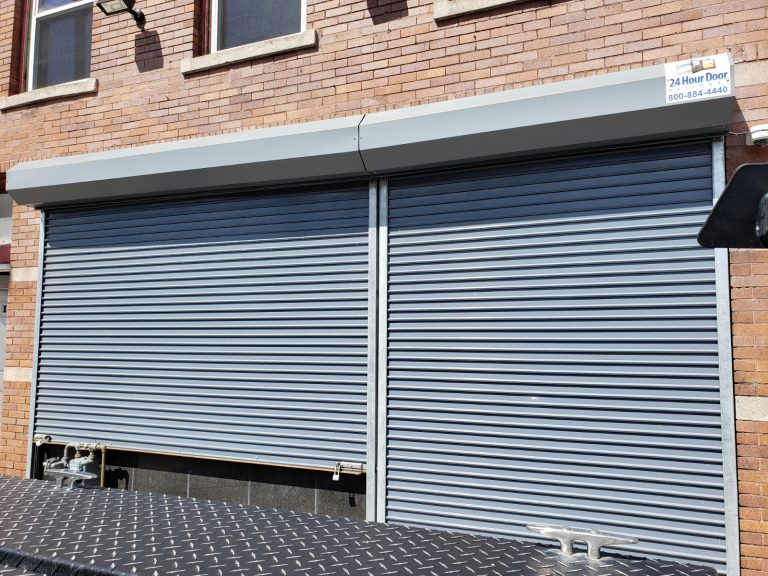**What Is Considered A Commercial Door: Features, Functions, and What Sets Them Apart**
Commercial doors are a crucial element in the architecture of businesses, providing not just access but also security, aesthetics, and functionality. In this article, we will explore the various features of commercial doors, their functions, and what distinctly sets them apart from residential doors. We will also touch on common concerns such as maintenance and repair options available for businesses looking for “commercial door repair near me.”

Understanding Commercial Doors
What Are Commercial Doors?
Commercial doors are designed specifically for business environments, offering enhanced security and durability compared to residential doors. These doors are often made from materials that can withstand heavy usage while still providing aesthetic appeal.
Types of Commercial Doors
There are various types of commercial doors suited for different applications:
- Hollow Metal Doors: Known for their strength and resistance to impact.
- Glass Doors: Often used in retail settings for visibility and aesthetic appeal.
- Wood Doors: While less common in high-security environments, they provide warmth and elegance.
- Fire-Rated Doors: Essential for safety regulations in many establishments.
- Automatic Doors: Ideal for high traffic areas where hands-free operation is preferred.
Why Choose Commercial Over Residential?
The differences between commercial and residential doors boil down to several factors including durability, design requirements, and compliance with safety regulations. For instance, commercial doors must meet specific building codes depending on their location and purpose.
Defining Commercial Doors: Features
Durability
One of the most significant features that set commercial doors apart is their durability. Designed to endure more wear and tear than residential options, these doors are typically constructed from heavier materials like steel or reinforced fiberglass.
Key Points on Durability
- Resistance to weather elements
- Impact resistance
- Long lifespan
Security Features
Security is paramount in any business environment. Many commercial doors come equipped with advanced locking mechanisms that ensure maximum safety.

Common Security Features
- High-security locks
- Reinforced frames
- Electronic access systems
Aesthetic Appeal
While functionality is critical, aesthetics should not be overlooked. Many types of commercial doors offer customizable designs that can enhance the overall look of your business premises.
Customization Options
- Color choices
- Designs (e.g., glass inserts)
- Branding opportunities (e.g., company logos)
Functions of Commercial Doors
Access Control
One primary function of commercial doors is to control access to a building or specific areas within it. This is particularly important in sectors like healthcare or finance where sensitive information may be present.
Importance of Access Control
- Protects sensitive information
- Regulates employee movement
- Enhances security protocols
Fire Safety Compliance
Many businesses must adhere to fire safety codes that require the installation of fire-rated doors. These specialized units help contain fires and provide safe egress during emergencies.
Fire Safety Functions
- Contain smoke and flames
- Provide clear exit routes
- Comply with local building codes
Energy Efficiency
With rising energy costs, many businesses are turning to energy-efficient solutions. Commercial doors designed with insulation can significantly reduce heating and cooling costs.
Benefits of Energy-Efficient Doors
- Lower energy bills
- Improved workplace comfort
- Positive environmental impact
What Sets Commercial Doors Apart?
Regulatory Compliance
Commercial buildings have unique compliance needs dictated by local laws and industry regulations that might not apply to residential settings.
Key Regulations Include:
Heavy Traffic Endurance
Unlike residential spaces which may experience lower foot traffic, commercial environments often require robust solutions capable of handling heavy use without compromising integrity or appearance.
Performance Expectations:
- Daily opening/closing cycles
- Weather resistance
Popular Materials Used in Commercial Door Manufacturing
Steel: The Heavyweight Champion
Steel is the most prevalent material used in constructing commercial doors due to its unmatched durability and security features.
Fiberglass: Lightweight Yet Strong
Fiberglass offers flexibility in design while being resistant to dents and rusting—ideal for a variety of business settings.
Aluminum: Modern & Sleek
Aluminum provides a contemporary look while remaining lightweight—perfect for modern offices looking to make a style statement without sacrificing functionality.
Common Maintenance Practices for Commercial Doors
Regular maintenance is essential if you want your commercial door systems to last long without costly repairs. Here’s how you can keep them in tip-top shape:
Routine Inspections
Make it a habit to inspect your door systems regularly for any signs of wear or damage.

Lubrication
Ensure all moving parts are well-lubricated to avoid unnecessary friction that could lead to premature wear-and-tear.
Commercial Door Repair Near Me: Finding the Right Help!
If you're facing issues with your commercial door system, searching online for “commercial door repair near me” can yield quick results. It’s essential to find professionals who specialize in repairing various types of commercial door systems because they’ll have the expertise necessary to diagnose issues accurately and offer effective solutions promptly.
FAQ Section
1. What are the main differences between commercial and residential doors? Commercial doors focus on durability and security while complying with regulations suitable for business environments; they’re generally sturdier than residential models designed primarily for aesthetics.
2. How do I choose the right type of commercial door? Consider factors such as traffic levels, security needs, fire safety requirements, energy efficiency goals, and aesthetic preferences when choosing your door type.
3. How often should I maintain my commercial door? Regular inspections at least twice a year are recommended; however, high-use facilities may benefit from quarterly checks or even monthly evaluations based on wear-and-tear levels observed over time.
4. What materials are best suited for high-security applications? Steel is often recommended due its strength; however fiberglass options may also feature reinforced locks making them viable too!
5. Where can I find reliable repair services near me? Searching online using terms like “commercial door repair near me” will yield numerous service providers specializing in this area; always check reviews before making a choice!
6. Are automatic doors considered commercial? Yes! Automatic sliding or swinging mechanisms fall under the category of commercial entrances thanks largely due their convenience factor within busy public spaces!
Conclusion
In conclusion, understanding the importance of Defining Commercial Doors: Features, Functions, and What Sets Them Apart helps businesses appreciate why these structures play an integral role not only in day-to-day operations but also ensuring compliance with regulatory standards necessary today! From selecting durable materials tailored towards specific purposes through regular maintenance practices—investing wisely into quality installations pays off long-term benefits both financially & operationally! Don't hesitate—if you need assistance locating "commercial door repair near me," https://a24hour.biz/cincinnati/ reach out today & secure peace-of-mind knowing experts will handle everything professionally!